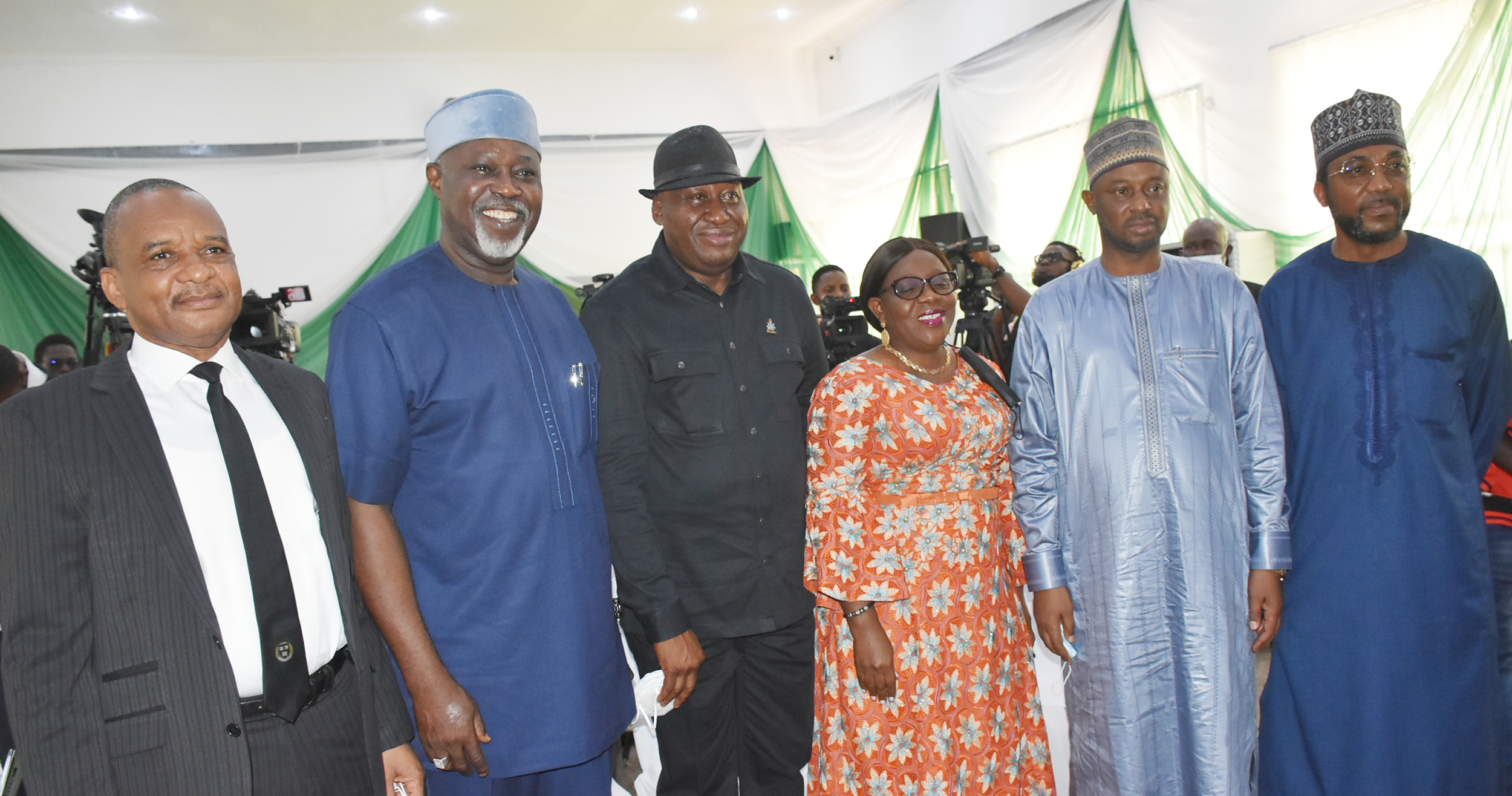Business
NSML Wants Nigeria Declared Maritime Nation

The Federal Government has been urged to declare Nigeria a maritime nation in order to facilitate investment in the sector.
Managing Director, Nigerian Liquefied National Gas (NLNG), Abdulkadir Ahmed made the call at a one-day conference held in Sheraton Hotel, Lagos, on Wednesday.
The conference, organised by the Shipping Correspondents Association of Nigeria(SCAN), sponsored by the NLNG Ship Management Limited (NSML), a sister company of NLNG Limited, with the theme : “NLNG Vessels Movement and challenges”, expressed the belief that this would spur investment in the shipping sector.
According to Ahmed, the company is vigorously implementing the Seafarers Continuous Development Program (SCDP), in conjunction with NIMASA, to ensure development and continuous supply of certified, competent, and qualified Nigerian seafarers .
He said over 107 Nigerians have successfully completed their training under the Maritime Centre of Excellence (MCoE).
Ahmed further explained that the NLNG Bonny terminal has recently been certified by the Port Environmental Review System (PERS), as the only port in Sub-Saharan Africa that complied with the requirements of leading environmental management practices.
He noted that this was made possible because of the proactive nature of the NSML Terminal management team.
“The company has future-proof the business through the continuous training, upskilling and development of its employees to enhance their capacity and ensure they are not only up-to-date, but also ensure they, and the company, are ready and able to adopt and adapt to the changing technological landscape”, he said.
Lending his words, the Fleet Manager, NSML, Yusuf Hambali, said the Federal Government should declare Nigeria a maritime nation in order to drive more investment into the sector.
He further called for waivers for investors in the sector in order to grow capacity and buoy the nation”s shipping sector.
Hambali bemoaned a situation whereby only Nigerian seafarers pay tax globally.
According to him, Nigeria is losing qualified seafarers to foreign nations due to the nation’s tax laws.
He noted that other nations such as India gave seafarers an exception to income tax.
“In India, if you are not in the country for seven months, you won’t pay any tax. But in Nigeria if you are not around for a whole year you are still going to pay tax and you know the tax are graded depending on your grade.
“If you are a seafarer and you see where you can go and be paid fully without deducting tax, you would like to go there.
“There need to be an advocacy to let the government know what is obtainable elsewhere. Some international seafarers don’t border for pensions”, he explained.
The Fleet Manager continued that in Nigeria, pensions are deducted in Dollars but paid back to them in Naira.
He also noted that it is difficult to dry dock in Nigeria because the facilities in the country cannot handle the size of ships .
By: Nkpemenyie Mcdominic, Lagos
Transport
Automated Points Concession : FAAN Workers Gave 72hrs To Revise Decisions In PH

Transport
FAAN Announces Pick-Up Points for Go-Cashless Cards

Business
Fidelity Bank To Empower Women With Sustainable Entrepreneurship Skills, HAP2.0
-

 News5 days ago
News5 days agoAmend Constitution To Accommodate State Police, Tinubu Tells Senators
-

 Politics5 days ago
Politics5 days agoSenate Urges Tinubu To Sack CAC Boss
-

 News5 days ago
News5 days agoDisu Takes Over As New IGP …Declares Total War On Corruption, Impunity
-
Politics2 days ago
2027: NIGERIANS FAULT INEC ON DIGITAL MEMBERSHIP REGISTER DIRECTIVE
-

 Environment2 days ago
Environment2 days agoLAWMA Director Says Sweeping Reforms Have Improved Waste Collection
-

 Featured5 days ago
Featured5 days agoFubara Reads Riot Act To New SSG, CoS …Warns Against Unauthorized Meetings
-
Rivers5 days ago
Etche Clan Urges Govt On Chieftaincy Recognition
-
News5 days ago
25 Killed In Adamawa Jihadist Attacks

